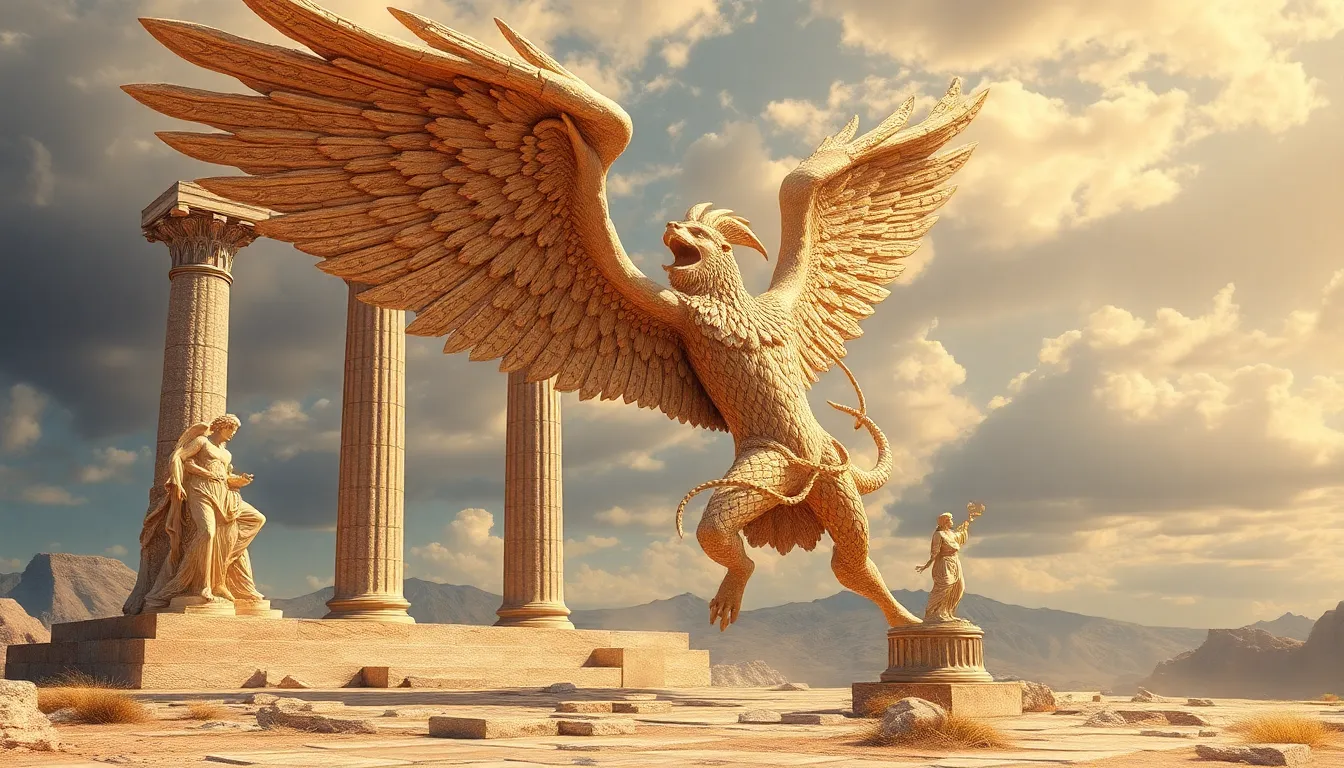The Role of Myth in Explaining Natural Phenomena in Greek Creation
I. Introduction
Myth, in the context of ancient cultures, refers to traditional stories that explain the world around us, often involving supernatural beings and events. Myths serve as a lens through which societies interpret natural phenomena, human experiences, and the cosmos. Greek mythology, with its rich tapestry of gods, heroes, and legendary tales, served a similar purpose, providing explanations for the mysteries of nature and existence.
This article aims to explore how Greek myths were used to explain the natural world, shedding light on the intersection of myth, culture, and the environment in ancient Greece.
II. Historical Context of Greek Mythology
The origins of Greek myths can be traced back to the early Greek civilization, evolving over centuries through oral traditions and later written texts. These myths were not static; they adapted to reflect the changing socio-political landscape of ancient Greece, influenced by the city-states, invasions, and the rise of democracy.
In ancient Greece, mythology was deeply intertwined with religion and science. Myths provided narratives that explained the cosmos and human existence, while also forming the basis of religious practices. The Greeks sought to understand their world through both mythological and early scientific thought, creating a unique intersection where mythology and rational inquiry coexisted.
III. Key Myths Explaining Natural Phenomena
Several key myths illustrate how the ancient Greeks explained natural phenomena:
- Theogony: This foundational myth recounts the birth of the gods and the creation of the cosmos, establishing the hierarchy of divine beings and their relationship to the natural world.
- Prometheus and the Gift of Fire: Prometheus, a Titan, stole fire from the gods and gave it to humanity. This myth not only explains the existence of fire but also symbolizes knowledge, creativity, and the duality of progress and punishment.
- Demeter and Persephone: The story of Demeter, the goddess of agriculture, and her daughter Persephone explains the changing seasons. Persephone’s descent into the underworld symbolizes winter, while her return heralds spring, reflecting agricultural cycles.
IV. The Role of Gods in Natural Phenomena
The ancient Greeks personified natural elements through their pantheon of gods, each governing specific aspects of the natural world:
- Poseidon: As the god of the sea, Poseidon was believed to control tides, storms, and earthquakes, emphasizing the Greeks’ reverence for the power of the ocean.
- Zeus: The king of the gods, Zeus wielded thunderbolts and was associated with weather patterns, from storms to droughts.
- Aphrodite: While primarily known as the goddess of love, she also represented the beauty of nature, influencing fertility and growth.
These divine beings were not only seen as creators but also as agents of unpredictability, manifesting in natural disasters and phenomena. Myths provided a framework for understanding and coping with the uncertainties of nature, allowing the Greeks to rationalize their experiences.
V. Symbolism and Allegory in Greek Myths
Greek myths are rich with symbolism and allegory, conveying deeper meanings about nature and existence:
- Allegorical Interpretations: Many myths serve as allegories for natural processes, human emotions, and moral lessons, illustrating complex ideas in a relatable manner.
- Symbolic Representations: For instance, the owl, associated with Athena, symbolizes wisdom and knowledge, reflecting the Greeks’ appreciation for intellectual pursuits and the natural world.
This use of symbolism had a profound impact on ancient Greek culture, shaping their worldview and influencing art, literature, and philosophy.
VI. The Influence of Greek Myths on Scientific Thought
As ancient Greece progressed, the influence of mythology began to wane in favor of rational thought:
- Transition to Rationalism: Philosophers like Socrates, Plato, and Aristotle started to question mythological explanations, seeking empirical and rational understandings of the world.
- Reinterpretation of Myths: Aristotle, for instance, approached myths analytically, suggesting that they could offer insights into human nature and the universe, rather than literal truths.
This transition laid the groundwork for modern scientific methodology, demonstrating the lasting impact of Greek thought on Western civilization.
VII. Comparative Analysis: Greek Myths and Other Cultures
When compared to other ancient cultures, Greek myths share notable similarities:
- Universal Themes: Many cultures utilize myths to explain natural phenomena, such as creation stories, floods, and the changing seasons. Examples can be found in Mesopotamian, Egyptian, and Norse myths.
- Common Archetypes: The archetypes of gods and heroes in Greek mythology find parallels in other traditions, highlighting humanity’s shared quest to understand nature.
By studying these similarities, we can glean insights into the universal human experience and the role of mythology in shaping cultural identities.
VIII. Conclusion
In summary, Greek myths played a crucial role in explaining the natural world, providing narratives that helped ancient Greeks make sense of their environment. Through the personification of natural elements, allegorical interpretations, and the intersection of mythology and early science, these myths shaped human perception of nature and existence.
The enduring legacy of Greek mythology continues to influence modern understanding, reminding us of the power of storytelling in grappling with the mysteries of our world. Ultimately, myths remain integral to our exploration of nature, culture, and the human condition.




